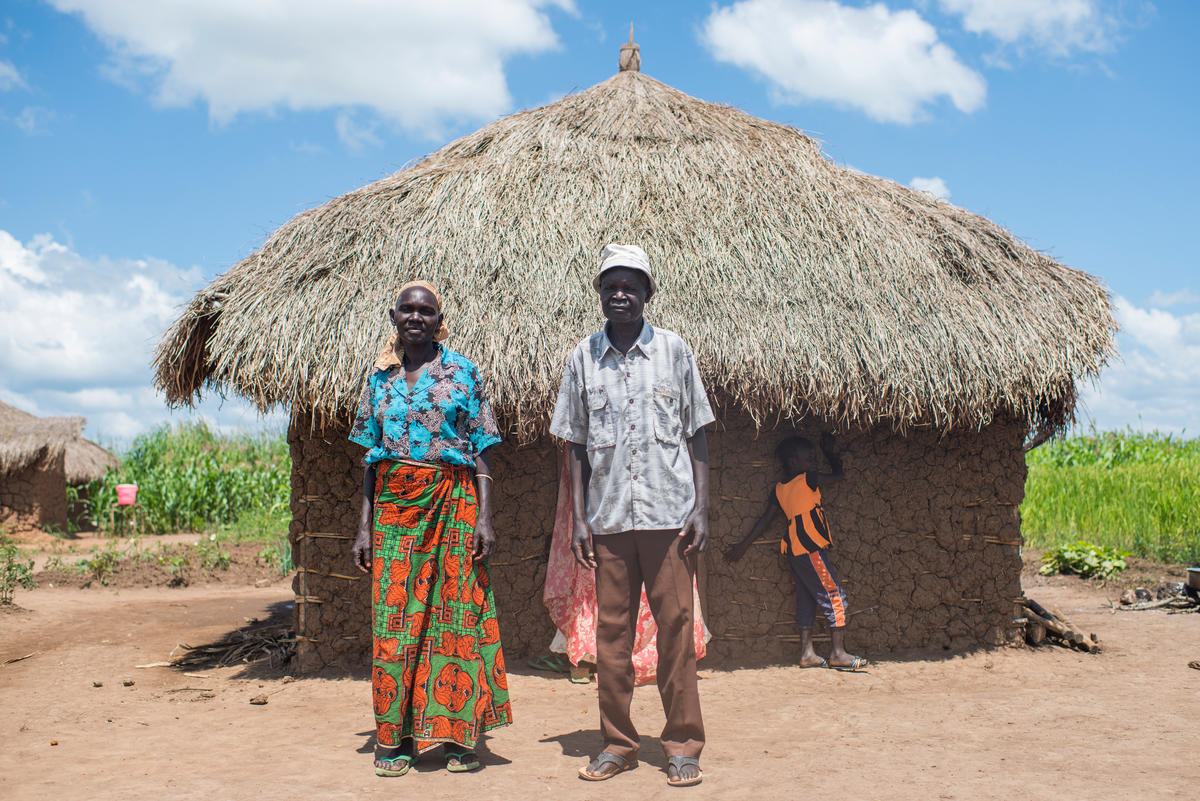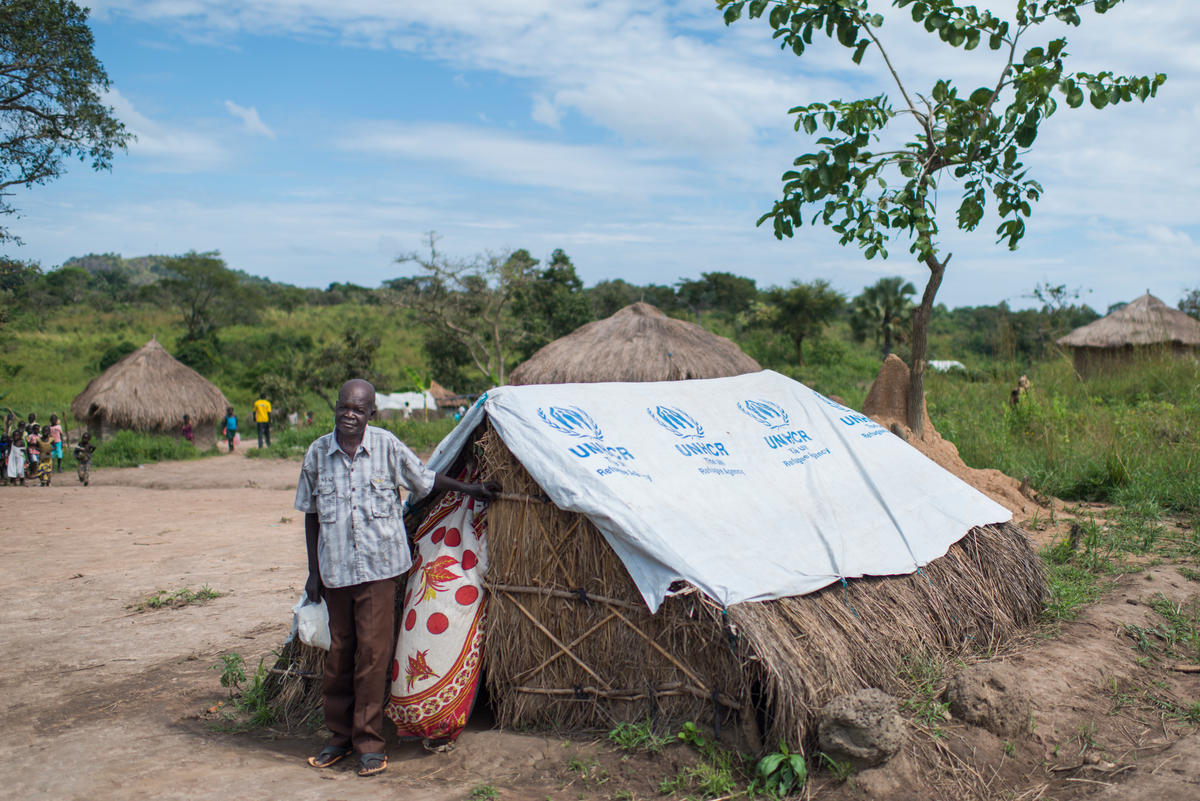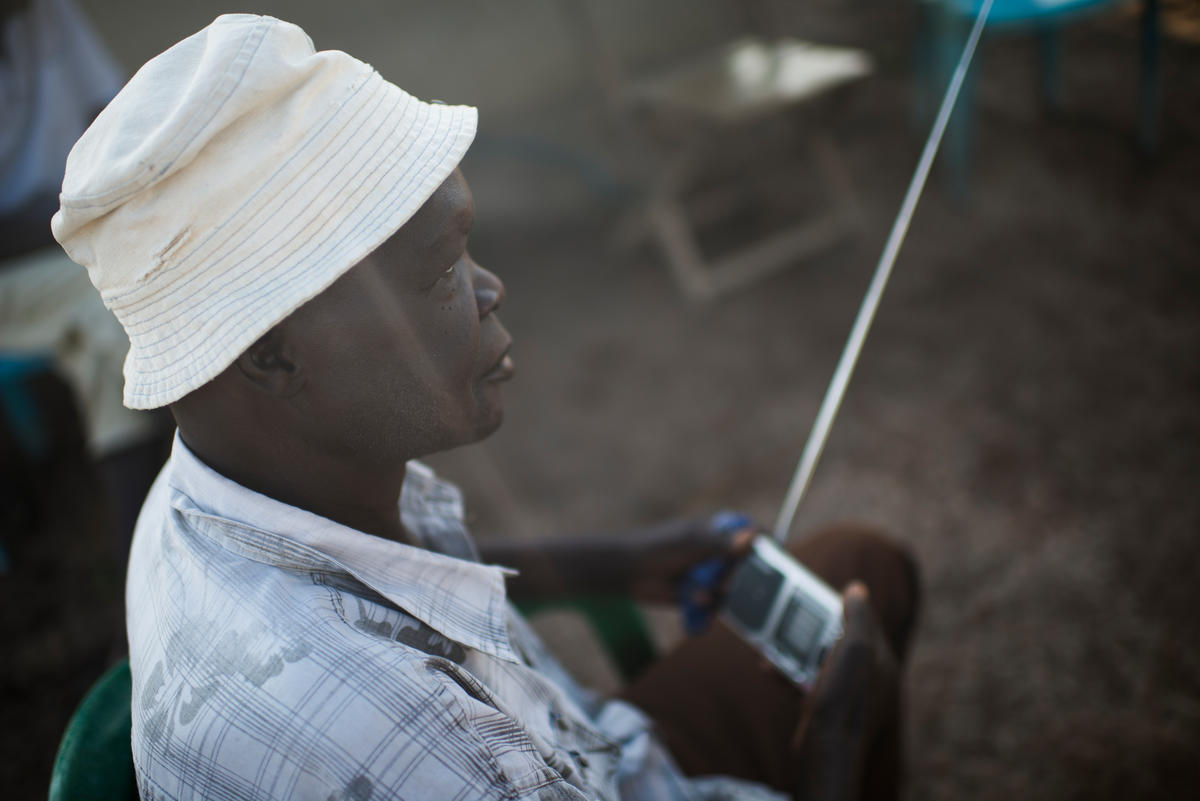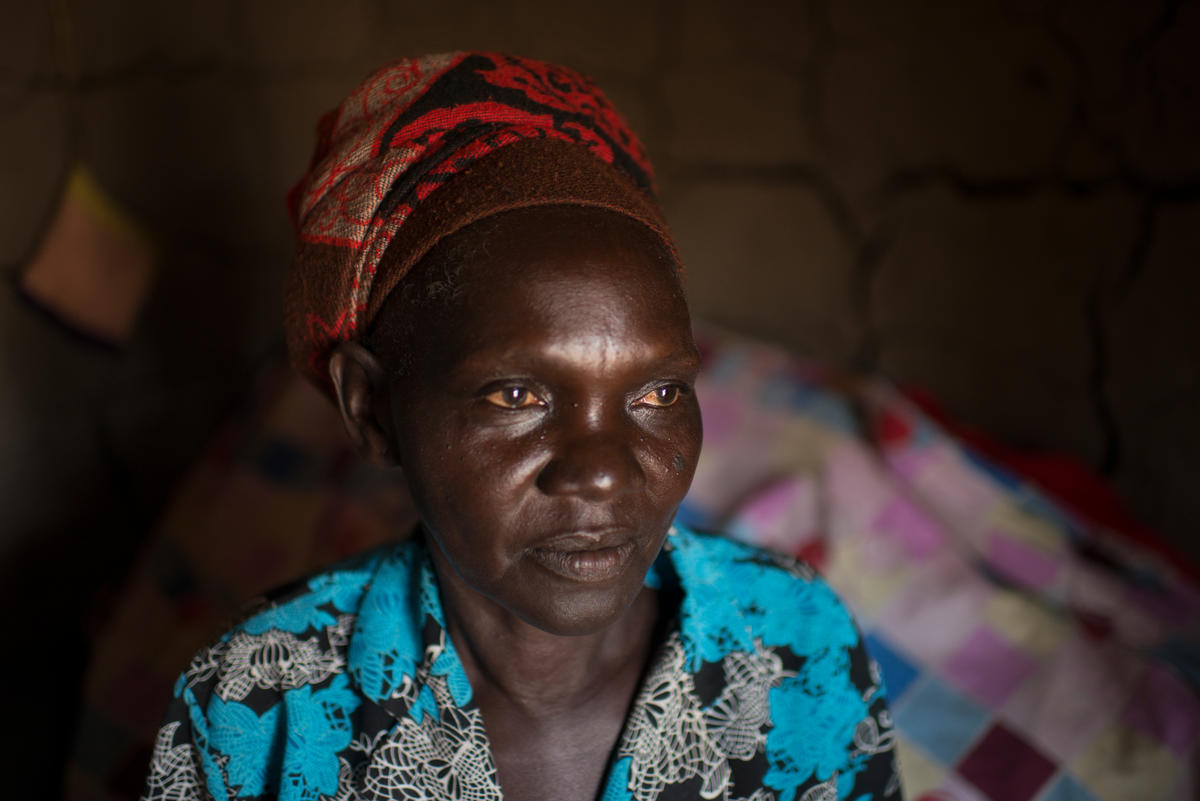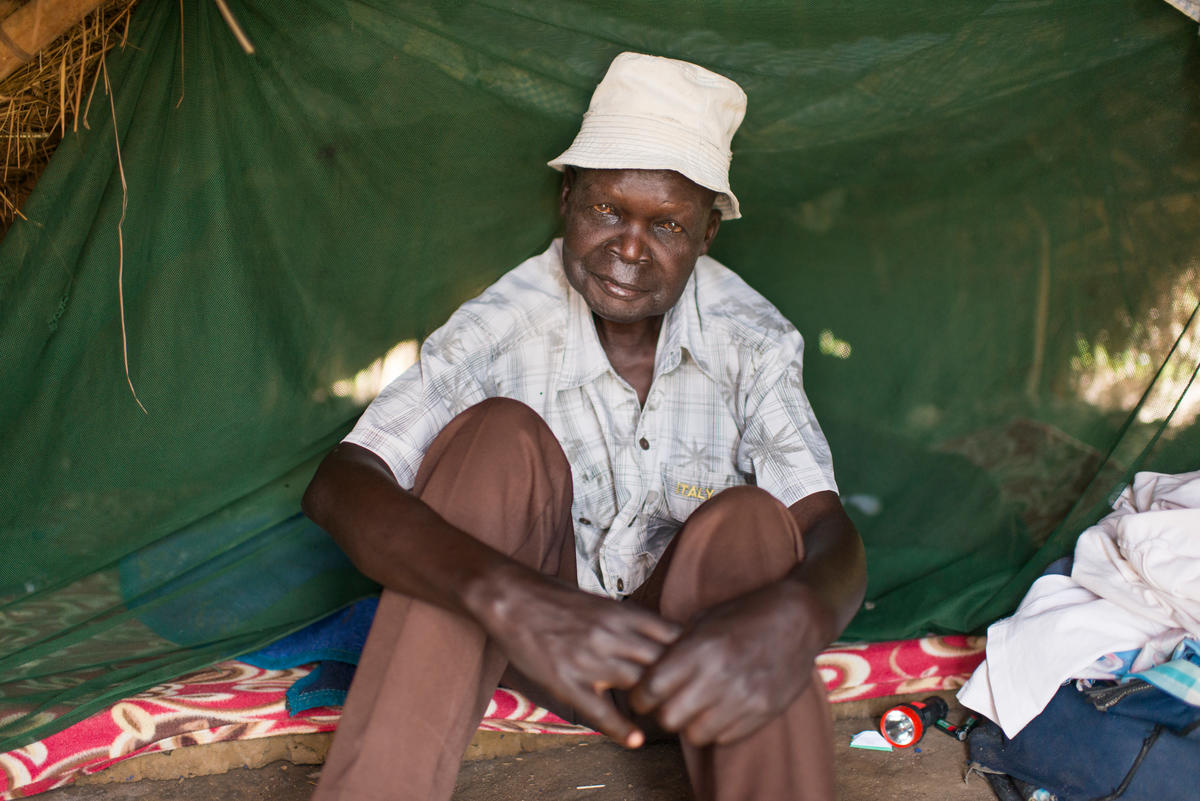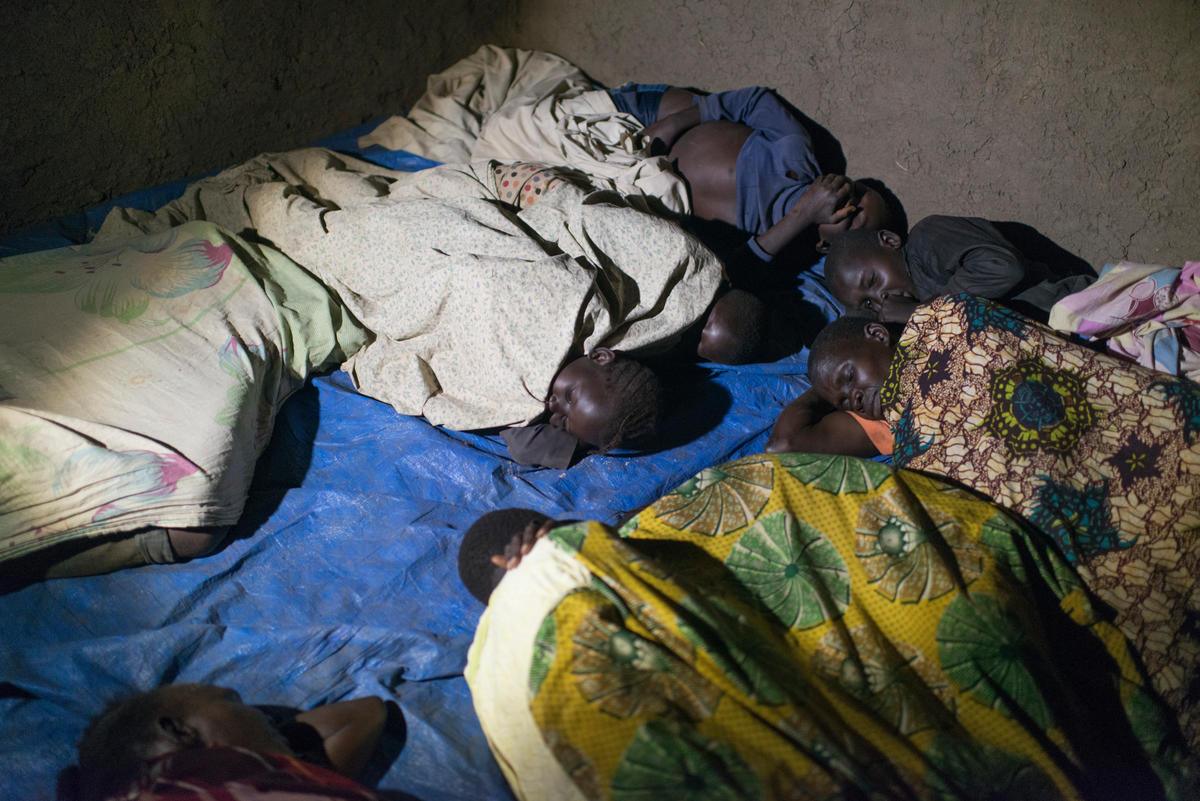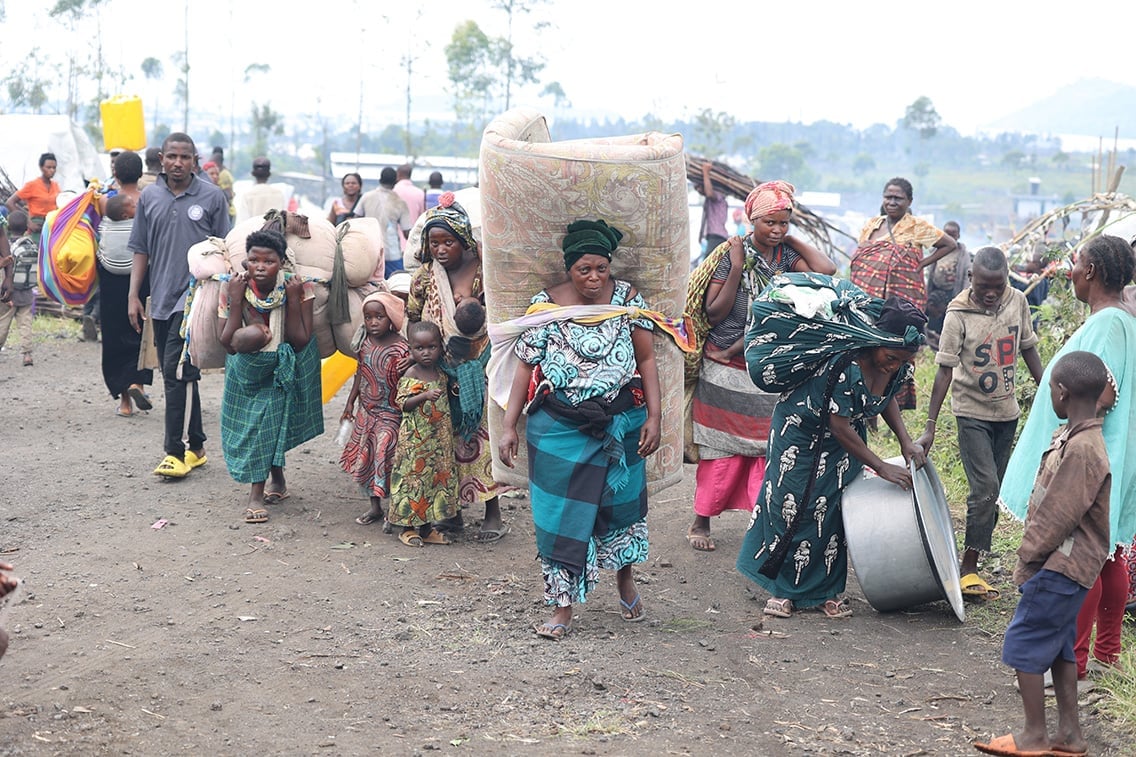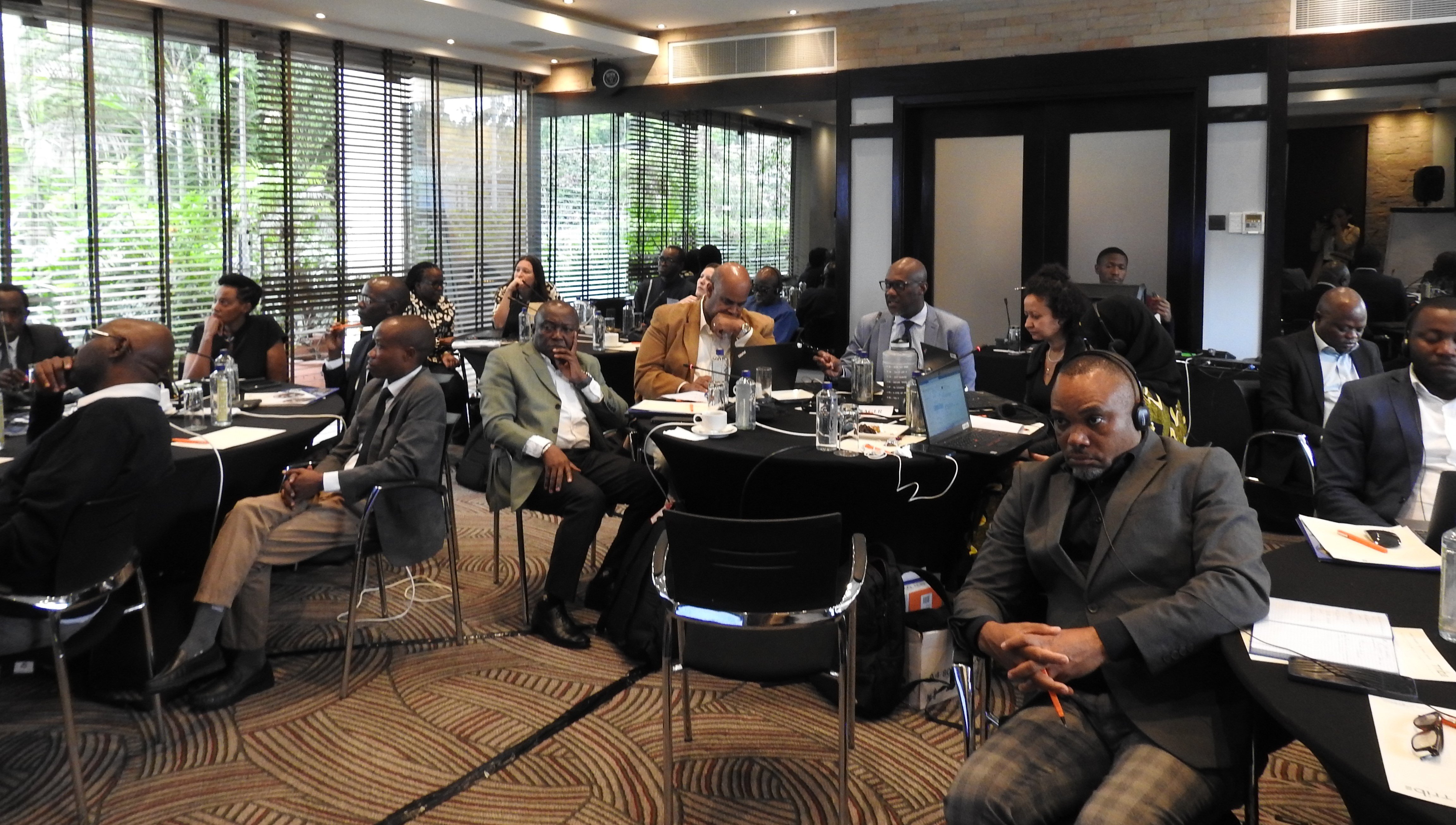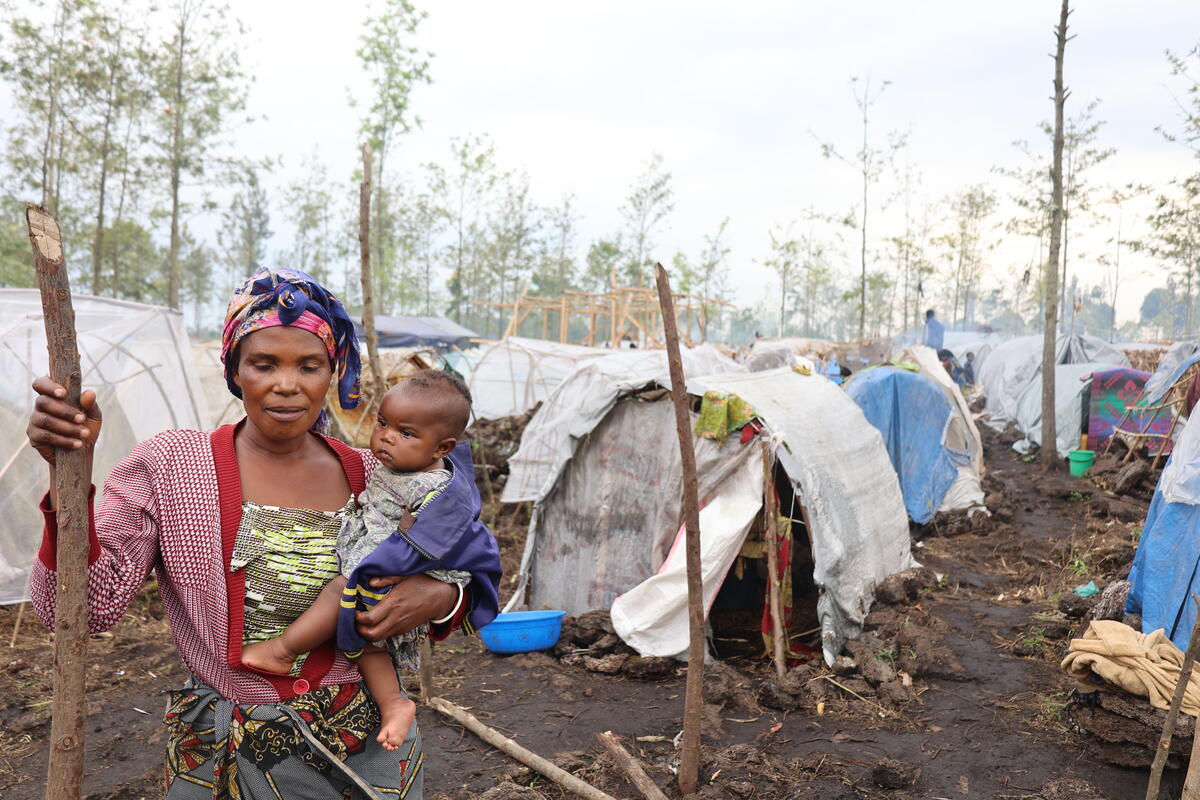Shelter crisis forcing elderly South Sudanese couple to live apart
When they lived in South Sudan, even in times of war, Cecilia Ofowa would never have imagined that one day, she would be forced to live separately from her husband of 38 years.
Today, Cecilia, 61, points at the entrance of her small mud hut which she shares with her seven children, grandchildren and one orphaned niece.
“We are nine people sleeping in this hut, on the floor. There is simply not enough space,” she says.
“We are nine people sleeping in this hut, on the floor.”
The poor living conditions are not Cecilia’s biggest worry though; what worries her most is the fate of her husband, Peter Juma Maru. He is staying half an hour away by foot, without a proper shelter, on the other end of Meri refugee site where over 30,000 South Sudanese refugees live.
“I would like to bring him here because he needs us,” she says. “He needs help as he is often sick. Our daughters can help him.”
But there is no space for her 66-year-old husband.
The couple’s problem is common among thousands of other South Sudanese refugees who have arrived in recent months in the Democratic Republic of Congo (DRC). UNHCR, the UN Refugee Agency, can only provide shelter materials for less than half of the refugees who have settled on sites in DRC’s remote northeast.
Due to limited funding, this means that up to 6,000 refugee families do not have adequate shelter. Many share flimsy and often overcrowded shelters with other families, while others stay in large communal hangars where they face potential risks like sexual violence and disease.
Cecilia and her family have only one square meter per person in their hut - a third of the acceptable space per person in emergencies as per UNHCR and humanitarian standards. The crammed conditions have given rise to a shelter crisis.
“For over a year, we did not have anything to distribute at Meri site, not even to the most vulnerable.”
There is also a serious lack of adequate essential household items. In Meri site for instance, UNHCR just received some stock including sleeping mats, mosquito nets, jerry cans and soap. The last distribution of these items was in January 2017. This severe lack of household items saw over 16,000 refugees, among them Cecilia and Peter, arrive to receive nothing.
UNHCR’s Supply officer in Aru, Anastase Makembera, warns that the stock will not be enough.
“For over a year, we did not have anything to distribute at Meri site, not even to the most vulnerable,” he says. “Refugees really feel the effect when we have no funds and it’s worrisome that the current stock isn’t enough.”
“We needed these items when we arrived,” says Cecilia. She resolved the problem her own way: she undertook a risky, week-long trek back to South Sudan, through the bush, to pick up a water container and some plastic tarpaulins she had hidden there before leaving early last year.
“What I expect is that one day, this thing will collapse on me.”
Meanwhile, Peter, who speaks English eloquently and was once a local official in South Sudan, creeps out of his shelter – a low-lying structure covered with a UNHCR plastic tarpaulin, with just a piece of cloth for a door.
“What I expect is that one day, this thing will collapse on me,” he says wryly, looking at the structure.
He moves to sit under the shade of a nearby tree where he often spends the long days listening to news from South Sudan on a small transistor radio. He reflects on the past when he lived comfortably with his family by his side.
“In our house in South Sudan, we used to invite all the family members for dinners,” he says. “We had everything you could eat - rice, meat…we talked and laughed a lot.”
Even as he reflects on the good days, he remains hopeful that he will be reunited with his wife, children and grandchildren again.



